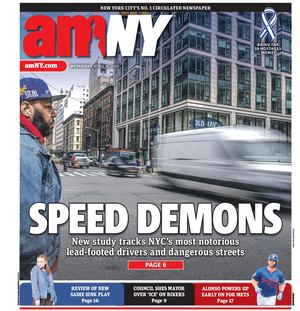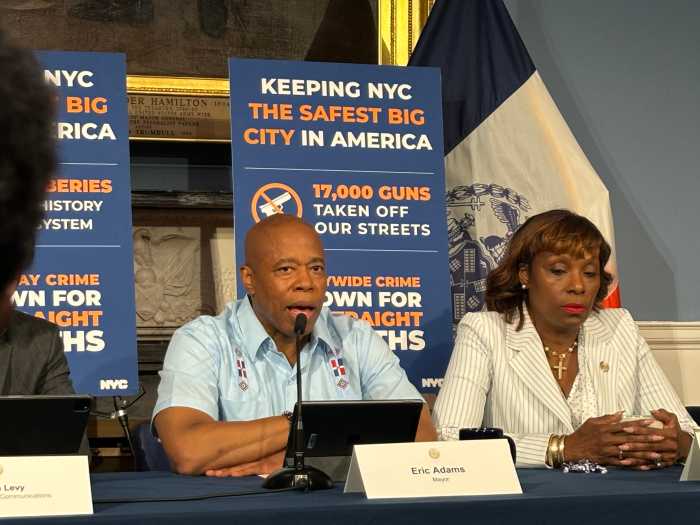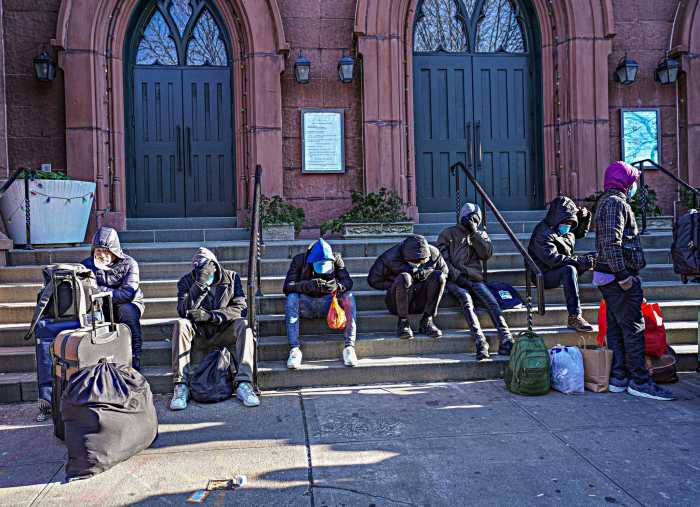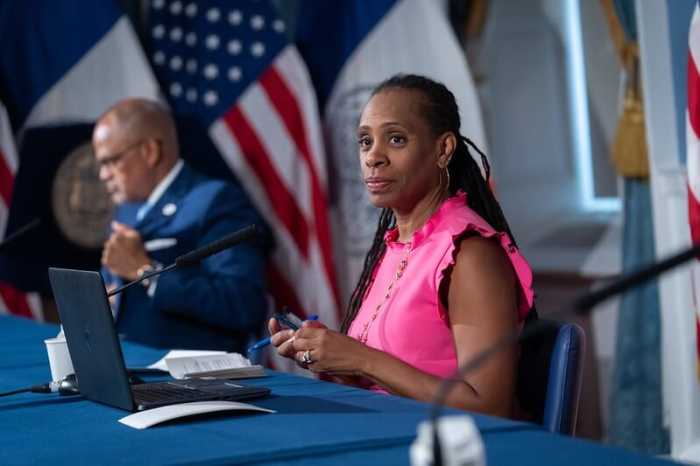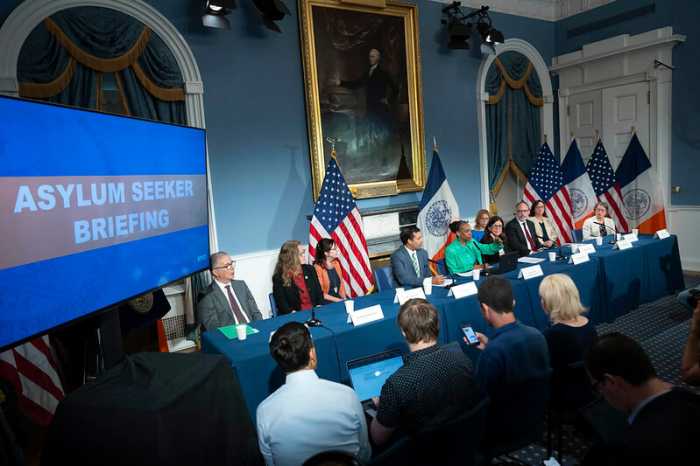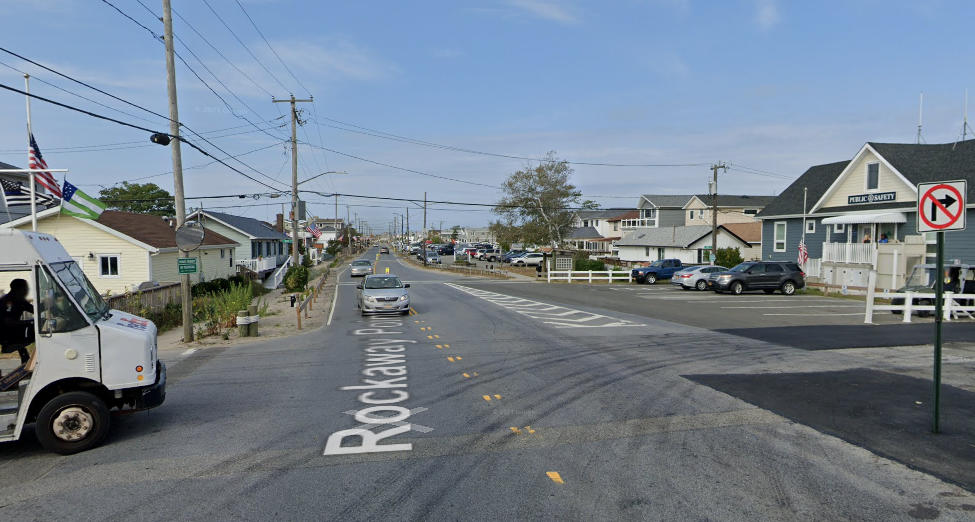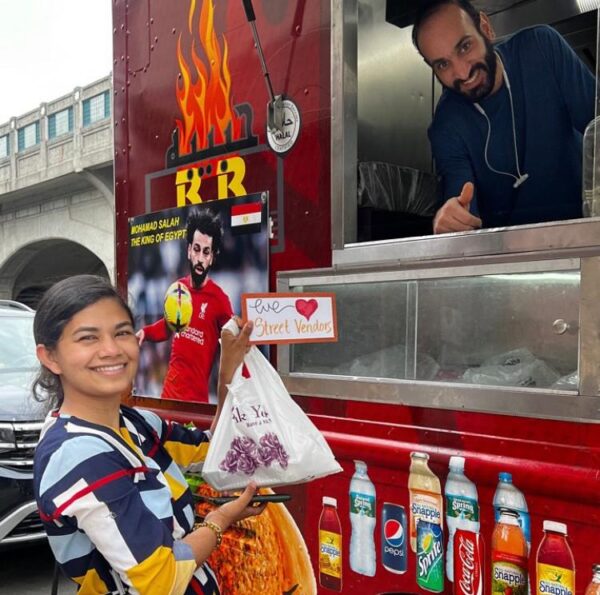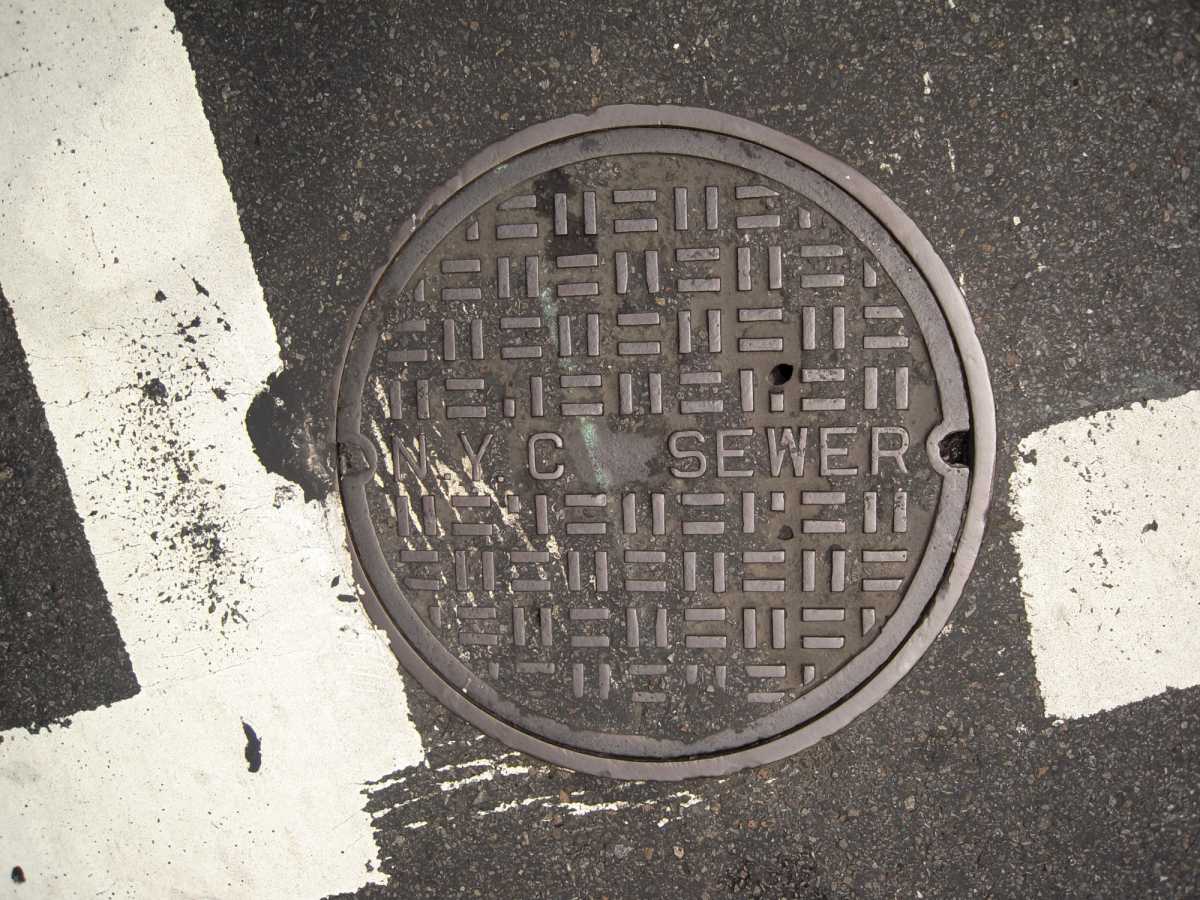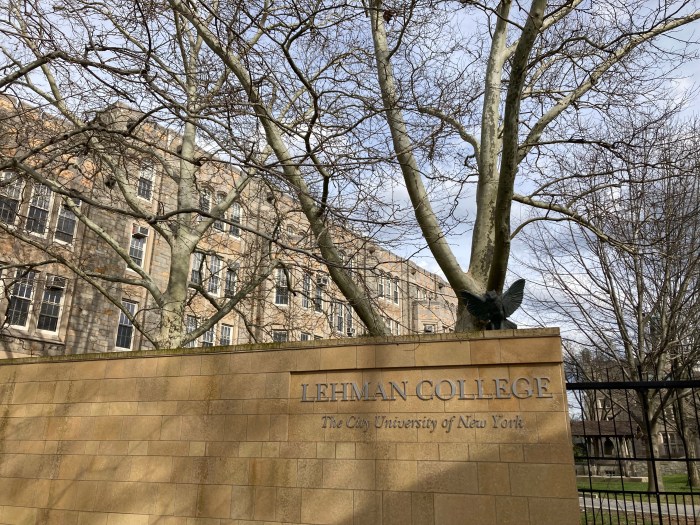Mayor Eric Adams on Friday announced the city will implement a new 30-day limit on shelter stays for single adult migrants, after previously instituting a 60-day cut-off in July.
With 300 to 500 newcomers still arriving in the Big Apple each day and the city still housing roughly 60,000 migrants, City Hall said the move will help free up much needed shelter beds.
The new action means that migrants who leave shelter after 60 days under the original notices, the first of which come due Saturday, and haven’t been able to find “alternative housing” placements, will only be given 30 more days in city shelters when they return to the intake center at the Roosevelt Hotel.
Furthermore, those requesting a bed for the first time will be given just 30 days to find housing outside the city shelter system from the start. The 30-day rule, like the 60-day rule before it, will be paired with stepped up casework services to help migrants in finding more permanent accommodations.
The mayor, in a statement, billed the even tighter shelter stay window as a way to help newcomers “take the next step,” rather than needing to boot them from sheltering for capacity reasons.
“For over a year, New York City has stepped up while waiting for the substantial help necessary from federal and state partners to comprehensively address this crisis and support the tens of thousands of asylum seekers in our care, and today’s announcement is another step in our efforts to help asylum seekers take the next step in their journeys,” Adams said in a statement.
Adams added more similarly “difficult decisions” may be coming down the pike without more financial and logistical support from Washington and Albany.
Adams has previously said there is “no guarantee” of a new shelter placement for those who reach the city-imposed time limit when they go to reapply for another bed at the Roosevelt Hotel.
In August, City Hall touted that over half of the migrants given 60-day notices had shown an active interest in finding alternative housing as evidence that the limit was helping push them to no longer be dependent on the city and its services. Late last month, Deputy Mayor for Health and Human Services Anne Williams-Isom estimated that dozens of the first migrants to be handed the notices will have to vacate shelter on Sept. 23, a number that will reach into the thousands in the coming weeks.
‘A cruel misguided policy decision’
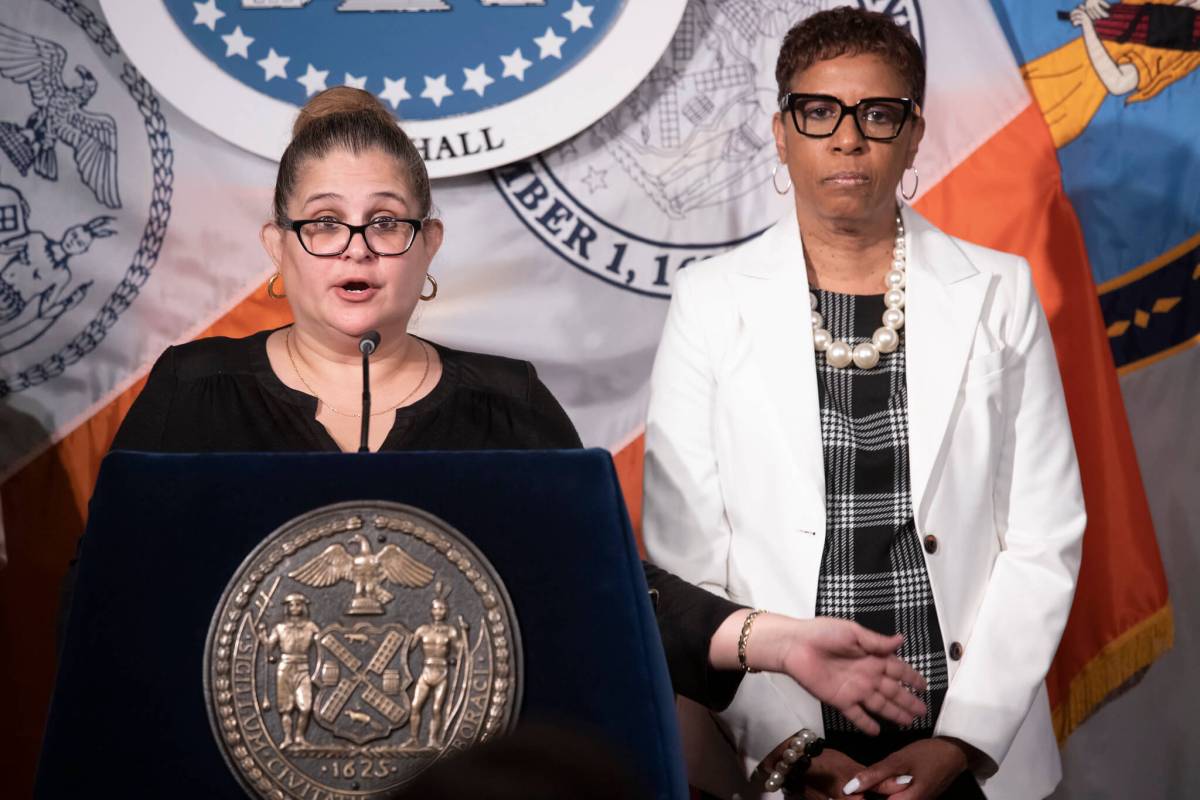
Deputy Council Speaker Diana Ayala (D-Manhattan), who has experienced homelessness herself, blasted the mayor’s latest move in a text message to amNewYork Metro.
“I think that this is a cruel misguided policy decision that has the potential of leaving thousands on the street,” Ayala said.
A City Council spokesperson, in a statement, echoed Ayala’s worry that the new limit could increase street homelessness, while also raising concerns that it could make it harder for migrants to obtain work authorizations and file asylum claims.
“This risks increasing street homelessness by potentially forcing people onto the streets, and also could undermine the ability for asylum seekers to receive work authorization and legal status, as they are moved away from a reliable mailing address to receive paperwork,” they said. “It’s troubling that the Administration is now enacting an even shorter timeline before assessing the impact of its existing 60-day timeline.”
Protected status, right to shelter
Earlier this week, the Biden administration granted Temporary Protected Status to nearly 500,000 Venezuelans, accounting for a decent percentage of those in the city’s care — although City Hall and the federal government have vastly different estimates for how many it will affect. Adams has long called for extending the protective status to migrants in the city so they can more quickly obtain legal work permits.
The city must continue to shelter migrants as long as its legally mandated “right to shelter” remains in place. The law stipulates that the city must give a shelter bed to any person who requests one.
Public Advocate Jumaane Williams, a frequent critic of the mayor, said he believes the mayor has wanted to “chip away” at the right to shelter to begin with and that policies like the 30 day limit will just lead to more migrants living on the streets.
“The mayor, I believe, has been opposed to right-to-shelter generally speaking, even before this,” Williams said. “Things like this have happened in the past … all it does is increase homelessness.”
